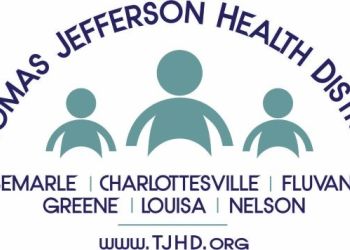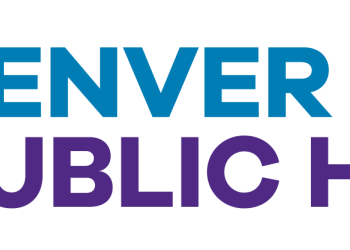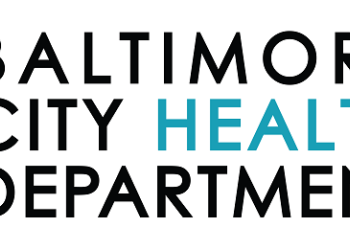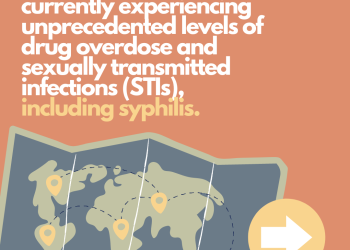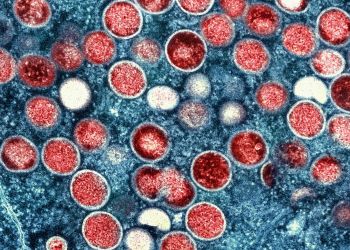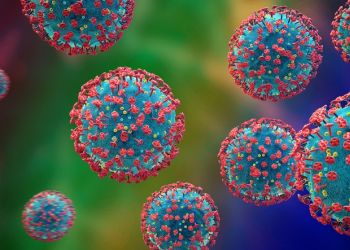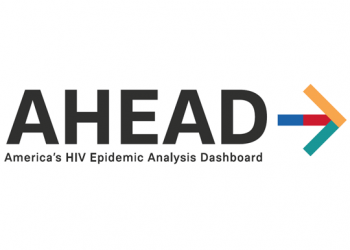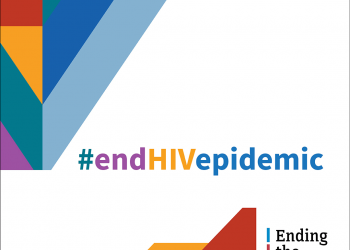HIV Prevention and Care
Thanks to targeted high-impact prevention efforts, HIV infections in the U.S. are declining. However, progress in reducing HIV transmission and HIV-related deaths is uneven. Several groups - including men who have sex with men, young Black/African American and Hispanic/Latinx communities, cisgender and transgender women, youth, and people who inject drugs - continue to experience rising rates. To address this, NACCHO is engaged in several efforts to help local health departments serve communities so that new HIV infections can decrease for all people and care will be available across the HIV care continuum.
Visit the Essential Elements of Local Public Health blog for the latest news, tools, and resources from the field!
NACCHO supports local health departments across the U.S. to prevent, detect, and respond to HIV in their communities. Access our featured resources and information about our recent work by topic below, and make sure to visit our blog for the latest tools from our partners.
Stories from the Field provides a means for local health departments to share their experiences and demonstrate the value of public health.
To be featured on our blog, email Julia Zigman (she/her) at [email protected] with an overview of your idea or program!
NACCHO’s Model Practices Program nationally honors and recognizes outstanding local public health practice and shares the outstanding practices through the Model Practices Database. By submitting a practice, LHDs contribute to the overall improvement of public health through effective evidence-based practice methods.
Model Practices are awarded to local health departments across the country for implementing programs that demonstrate exemplary and replicable outcomes in response to an identified public health need. Promising Practices are exciting approaches and strategies to local public health issues that are on track to becoming Model Practices. Each awarded practice was reviewed by a committee of peers, made up of other local health department professionals, and selected from a competitive collection of applications.
View the drop-downs below to access select HIV-related Model Practice and Promising Practice award winners from the last two years. To view all Model Practice awardees from previous years, visit our searchable database.
| Application Title | Award Status | Year Awarded | Health Department Name | Keywords |
|---|---|---|---|---|
| Be Well Maryland Mobile Wellness "Wellmobile" | Model Practice | 2020 | Anne Arundel County Department of Health (MD) | Harm reduction, mobile services, MAT, naloxone, HIV prevention, STI prevention, syringe exchange |
| Increasing Access to PrEP in a Sexual Health Clinic | Model Practice | 2020 | Jefferson County Department of Health (AL) | PrEP, STI, HCV testing, HCV treatment, HIV prevention |
| Healthcare on the Spot: Integrated Mobile Treatment | Promising Practice | 2020 | Baltimore City Health Department (MD) | Harm reduction, mobile services, MAT, naloxone, HIV prevention, STI prevention, syringe exchange |
| PROACT Program Collaborates to Improve HIV Retention in Care | Promising Practice | 2020 | Florida Department of Health in Broward County (FL) | HIV, partnerships, retention, linkage to care, pharmacy, DIS, ADAP, RWHAP, adherence |
| Decrease HIV Risk Through Use of Pre-Exposure Prophylaxis (PrEP) | Promising Practice | 2020 | Florida Department of Health in Broward County (FL) | HIV prevention, PrEP, partnerships, navigation, linkage to care, community engagement |
| Decreasing Community Viral Load Through Innovative Test and Treat Program | Promising Practice | 2020 | Florida Department of Health in Broward County (FL) | HIV treatment, adherence, linkage to care, viral suppression, RWHAP, ADAP, pharmacy |
| The Impact of Pharmacist Implemented HIV Medication Adherence in Minority Communities | Promising Practice | 2020 | Florida Department of Health in Duval County (FL) | HIV treatment, pharmacy, adherence, community engagement, viral suppression |
| Aurora Syringe Access Services | Model Practice | 2019 | Tri-County Health Department (CO) | Harm reduction, syringe service programs, SSPs, naloxone, referral, HIV prevention, HCV prevention, substance use |
| PrEPLink: An Active PrEP Referral System | Model Practice | 2019 | Florida Department of Health in Miami-Dade County (FL) | HIV prevention, PrEP, referrals, collaboration, provider engagement |
| Miami-Dade Test and Treat | Model Practice | 2019 | Florida Department of Health in Miami-Dade County (FL) | HIV treatment, rapid ART, linkage to care, retention, collaboration, referral, RWHAP, pharmacy |
| Engaging State and Local Officials in Reducing New HIV Infections | Promising Practice | 2019 | Florida Department of Health in Miami-Dade County (FL) | HIV prevention, community engagement, stakeholder engagement, communications, outreach campaign |
| The Ask: Partnering to Connect At-Risk Teens with Sexual Health Resources | Promising Practice | 2019 | DuPage County Health Department (IL) | Sexual health, adolescent health, education, HIV prevention, STI prevention, community engagement, coalition |
NACCHO's policy statements and communications to Congress and the administration related to HIV are found below. The organization's Board of Directors determines positions on public health issues. Learn how local health departments have used NACCHO's policy statements to influence local, state and federal policy.
NACCHO members participate actively in the organization's policy development process through workgroups. The HIV, STI, and Viral Hepatitis Workgroup contributes to the development and revision of all HIV-related policy statements. Learn more about this workgroup and apply to join here.
HIV-related policy statements
- HIV Prevention, Care, and Treatment
- Syringe Services Programs & Other Harm Reduction Strategies
- Comprehensive Sexuality Education
Health equity policy statements
- Comments on the COVID-19 Impact on HIV Programs in Local Health Departments (6/1/20)
- Joint Letter to Congress Requesting an Increase in Funding for Domestic HIV/AIDS Programs (3/6/19)
- Letter Regarding Changes to Title X Program (7/31/18)
- Joint Letter to Texas Insurance Commissioner Requesting Investigation into Limited Access of HIV and Hepatitis C Medications (5/16/18)
- Letter Endorsing Eliminating Opioid Related Infectious Diseases Act of 2018(3/14/18)
- Joint Letter to Congress Requesting Increased Funding for HIV/AIDS Programs in FY2019 (3/8/18)
View more policy statements and letters to Congress and the administration on NACCHO's Policy and Advocacy page.
Stay up to date on the latest HIV, STI, and viral hepatitis tools, news, and resources on our blog, The Essential Elements of Local Public Health! Click through the arrows below to see recent our recent posts or visit the blog to view all posts related to HIV, STI, and viral hepatitis.
Recent News
| Webinar Title | Description | Slides | Date | Additional Resources |
|---|---|---|---|---|
| HIV Marketing Webinar: Office Hours | Continuing the conversation following our HIV Marketing webinar session, we invited local health departments to discuss their own HIV focused marketing campaigns, as well as communications efforts during a special office hours session. The objective was to create a space for peer-to-peer learning and networking. | Slide Deck | December 14, 2023 | |
| HIV Marketing Webinar | NACCHO and KFF continued their marketing and communications webinar series with the second session, HIV Marketing. During this session, participants were joined by Fulton County Health Department, Clark County Health Department and KFF Social Impact Media to learn more about creating effective HIV Marketing Campaigns. | November 9, 2023 |
The federal Ending the HIV Epidemic: A Plan for America initiative (EHE) seeks to reduce the number of new HIV infections in the United States by 75 percent within five years, and then by at least 90 percent within 10 years, for an estimated 250,000 total HIV infections averted. For the first five years (Phase I), the federal EHE initiative will focus on 57 priority jurisdictions, including 48 counties, Washington, DC, and San Juan, Puerto Rico, where more than 50 percent of new HIV diagnoses occurred in 2016 and 2017 and also seven states with a disproportionate occurrence of HIV in rural areas.
For decades, local planning has been critical to HIV prevention and treatment and will continue to be crucial for effectively creating programs that reach and treat people living with HIV in the Unites States. Find out below how NACCHO is supporting the work of local health departments to reduce transmission, link individuals to care, and ultimately end the HIV epidemic.
NACCHO works alongside the CDC, community organizations, and other technical assistance providers to advance the goals of the Ending the HIV Epidemic initiative. To ensure that the local perspective is heard and that we adequately support local jurisdictions in your EHE efforts, NACCHO partners with the National Alliance of State and Territorial AIDS Directors (NASTAD) to support the development, integration, and coordination of EHE plans within new and existing HIV prevention and care delivery systems. We have also formed a strategic partnership with the CAEAR Coalition to foster collaboration between Ending the HIV Epidemic (EHE) jurisdictions and Ryan White Part A grantees for improved advocacy and capacity building.
NACCHO is furthermore proud to partner with a variety of national and community-based organizations leading efforts to end the HIV epidemic, including the Federal AIDS Policy Partnership; the Act Now End AIDS Coalition; the National Coalition of STD Directors (NCSD); AIDS United; the AIDS Institute; NMAC; Southern AIDS Coalition; the Association of State and Territorial Health Officials (ASTHO); Big Cities Health Coalition; and many others. To learn more about NACCHO's EHE work and inquire about partnerships, please contact Latisia Grant, Senior Program Analyst at [email protected].
Ending the HIV Epidemic: A Plan for America homepage
Review key strategies, priority jurisdictions, funding, timeline, and more
Related resources:
- Explore CDC's role in EHE on CDC.gov
- Explore HRSA's role in EHE on HRSA.gov
- Learn about federal funding for EHE at Kaiser Family Foundation's EHE "explainer" and funding tracker
The AHEAD Dashboard
America’s HIV Epidemic Analysis Dashboard (AHEAD) graphically visualizes data on the six indicators used to track progress towards ending the HIV epidemic (EHE) in America. By tracking progress, jurisdictions, communities, and stakeholders will be able to monitor movement towards reducing new HIV transmissions by at least 90% by 2030. This tool is envisioned to be an asset that will provide the most up to date information available about EHE progress to help inform national and jurisdictional decision-making.
Ready, Set, PrEP
Ready, Set, PrEP is a new nationwide program led by HHS that provides PrEP medications at no cost to thousands of individuals who qualify. The program will expand access to PrEP medications, reduce new HIV infections, and bring us one step closer to ending the HIV epidemic in the United States. Learn about eligibility, discover partnering pharmacies, and access print and social media resources for consumers and healthcare professionals at HIV.gov.
NASTAD Ending the HIV Epidemic Newsletter
The National Association of State and Territorial AIDS Directors (NASTAD), with collaboration from the National Association of County and City Health Officials (NACCHO), the Council of State and Territorial Epidemiologists (CSTE), and the National Coalition of STD Directors (NCSD), will begin distributing a monthly newsletter to Phase 1 Ending the HIV Epidemic: A Plan for America jurisdictions. The newsletter will inform recipients of EHE related policy updates, communications from federal partners, success stories, and any other related EHE information. Subscribe to the newsletter at NASTAD.org.
TakeMeHome - A Free HIV Home Testing Program
Building Healthy Online Communities (BHOC), in partnership with Emory University and NASTAD, developed the National Home Test Kits program for state and local health departments to offer confidential HIV and STD testing delivered securely and discreetly directly to their constituents. Learn more about utilizing HIV self-testing to end the HIV epidemic and how to sign up at bhocpartners.org.
Self-Testing for HIV and STIs at LHDs: Survey and Stories From the Field
In May 2020, NACCHO conducted a brief survey to assess local health departments’ (LHDs) HIV self-testing capacity and challenges. The findings, available on our blog, highlighted multiple facilitators and challenges to implementing non clinic-based self-collected testing, including a need for information about the variety of approaches health departments use to implement innovative HIV testing strategies. To help fill this need, NACCHO published a three-part series on HIV self-testing programs at LHDs across the nation. Read the series and learn more about NACCHO's continuing work in this field on our Stories From the Field blog.
NACCHO offers direct technical assistance to local health departments prioritized in Phase I of the Ending the HIV Epidemic Initiative in conjunction with NASTAD. To learn more about our direct TA, please contact Latisia Grant at [email protected].
For questions about NACCHO's work regarding HIV prevention, detection, and response, contact our HIV specialists below.
Community Health Program
Julia Zigman
Senior Program Analyst, HIV
JavaScript is required to reveal this message. / Email
Community Health Program
Randy May
Director, HIV & Harm Reduction
JavaScript is required to reveal this message. / Email
Community Health Program
Darnell Barrington
Senior Program Analyst, HIV
JavaScript is required to reveal this message. / Email
Community Health Program
Anthony Green
Program Analyst, HIV
JavaScript is required to reveal this message. / Email
Communications
Grace Murtha
Communications Specialist
JavaScript is required to reveal this message. / Email
